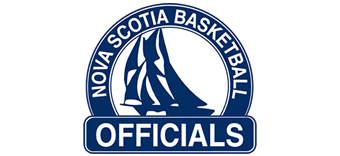Guidelines for Coach and Official Interaction-2017
It is recognized that both coaches and officials play an integral part in the development of the game. Coaches and officials are expected to be role models to the players and ambassadors of the game. It is understood that basketball is a competitive environment and that people will have emotional reactions. However, there is an expectation that all participants model acceptable behaviour during competition.
General
- Communication between coaches and officials and officials and coaches should be done in a respectful and professional manner.
- Communication should not be confrontational nor directed negatively on a personal level.
- Communication to officials should be done to gain information and for coaching purposes.
- Communication should not delay the game.
- Coaches and officials should strive for quality, not quantity when communicating with each other.
- Officials should always be firm and clear on rules but easy on people.
- Upgrading of fouls or changing calls must be communicated to both coaches at the same time
Communication should not be confrontational
Coaches and officials should not let their emotions get the best of them. Officials and coaches must keep their hands off each other.
- It is not acceptable for coaches or officials to be yelling across the court at each other.
- Coaches and officials approach to each other should not be aggressive in wording or gestures.
Communication should be done to gain information
- Communication should be for clarification so that the coach can help his/her team; improve or maximize their performance. Officials should answer questions at the appropriate time. Not STATEMENTS.
- Coaches should strive to ask questions rather than make statements. Statements are not appropriate communication, especially when directive i.e. “You must…” or “Call the…”
- Rhetorical questions are not considered acceptable and will not be answered. i.e. “What are you looking at?” and may result in a warning or technical foul
- Questions that are really statements are not considered appropriate. i.e. “Do you know the fouls are 6 – 0?” and may result in a warning or technical foul
Communication should not delay the game
- Communication should be efficient in manner
- Communication should not be prolonged such that it delays the game
- Officials and coaches should develop their abilities such that they can express their point of view in an accurate and concise manner
- Coaches should respect that after making their point and getting the official’s perspective that it may be a case of “agree to disagree” and move on
Technical Fouls
Note that a warning is not a pre-requisite to a technical foul. Warnings may be given and are recommended as the circumstances dictate. That said, if the behaviour or communication warrants it, no warning will be given and a technical foul assessed.
Coaches can and should receive technical fouls when:
- Swearing at the officials
- Making comments that attack the integrity of the official(s)
- Making it personal i.e. “You have to do better” “You’re terrible”
- Using consistent negativity towards the officials
- Consistently trying to interrupt the flow of the game through his/her communications
- Behaviour such as posturing or holding the ball to make a point
- Being aggressive towards the officials in language and/or tone
- Trying to intimidate the officials
- Gesturing to influence the crowd or to express displeasure
- Throwing an object
- Charging towards an official in an aggressive manner.
- Waving off an official
- Blow that whistle-that’s brutal
When Communication May and May Not Occur
Officials should go across the court and not communicate with coaches prior to the game other than to shake hands before the tipoff.
- Communication during live ball distracts the officials from the game and coaches should not expect to be answered by the officials.
During a clock stoppage
- The head coach may communicate with the officials
- In a two person crew the head coach can communicate with an official prior to the administering of the free throws such that all communication is finished with the table and the communication does not create delay in the game administration. In a three-person officiating crew, the head coach may talk to an official during the first of two or the first and second of three free throws. The official must maintain court
- During timeouts, quarter and half time intervals, the officials should not go over and talk to the coach until the end of the time out or interval. The communication should not delay the game
- Coaches are not allowed to come out onto the court to communicate with the officials
- When coaches/team personnel come out onto the floor to tend to an injured player, they shall not take this as an opportunity to voice their displeasure with the officials
Reminders on Bench Decorum
- By rule, either one but not both, the head coach or an assistant coach can stand to coach their team while play is in progress. Only the head coach, by rule, can communicate with the officials
- Assistant coaches should not be communicating with the officials regarding fouls or violations
- Head coaches are expected to coach within the team bench area and refrain from coming out onto the court to coach or communicate with officials
IMPORTANT– The head coach is responsible for the decorum of all players and team personnel Bench personnel can applaud exciting plays, otherwise they must be seated. Zero tolerance for any negative comments or gestures directed at officials by bench personnel. This will result in a technical foul”. Both officials must monitor bench decorum.
